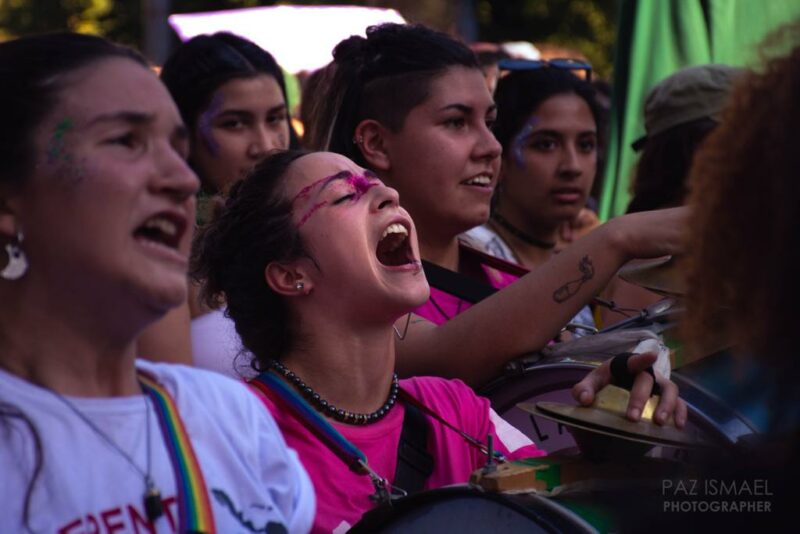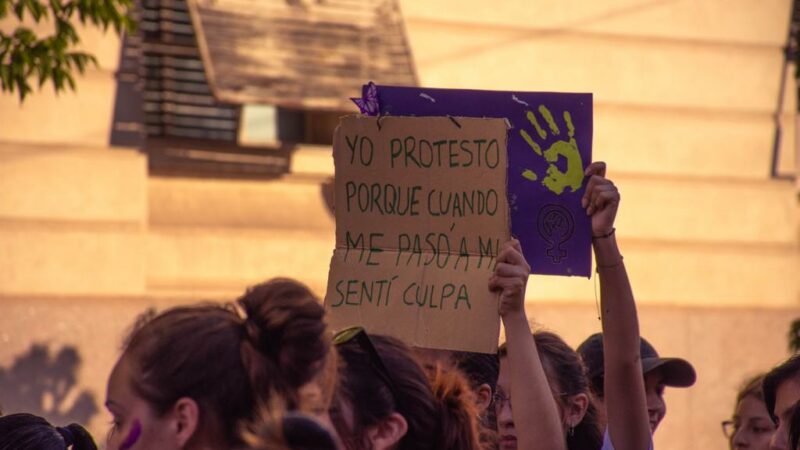The feminist struggles in Argentina continue to diversify
Originally published on Global Voices

Photo of the march for women's rights, on March 8, 2023, by Maria Paz Ismael PH. Used with her permission
International Women's Month in March focuses on women's demands for their rights and their struggles to participate in society on equal terms with men. This culminates in large marches on March 8, which paused in 2021 due to COVID-19 pandemic restrictions but resumed in Latin America this year. In Argentina this year, they represented an opportunity to assess what has been achieved so far, but also the shortcomings that create new challenges for women.
In recent years, feminist movements in Latin America have given great impetus to the celebration of Women's Day, colloquially known in Latin America as “8M.” For example, in 2020, before the restrictions due to the COVID-19 pandemic, millions of people participated in the 8M marches in Chile, Mexico, Argentina, and other Latin American countries. In particular, the feminist movement in Argentina was an important driving force in opening the debate on the right to abortion and the rights of trans people on the continent.

Photo of the march for women's rights, on March 8, 2023, by Maria Paz Ismael PH. Used with her permission.
In Argentina, 8M began to be celebrated in 1983, when democracy was reinstated after seven years of a military junta. This year's 8M was extremely significant, since it included a special celebration for the 40th anniversary of the return to democracy after one of the bloodiest dictatorships in Latin America. Today 8M is a commemorative date and also has a program of demands.
The main events took place on Wednesday, March 8 in the center of Buenos Aires where thousands of people marched, but there were activities planned throughout the week and in different provinces. The program included a march and a national strike, as well as meetings, artistic events, workshops, conferences, and concerts. The gender issue has been under a transformation and has been opening the agenda to other essential issues, such as the rights of LGBTQ+ people.

Photo of the march for women's rights, on March 8, 2023, by Maria Paz Ismael PH. Used with her permission.
This year was an opportunity to assess the achievements of recent years. In 2017, lawmakers voted for mandatory equality in political representation, and later, the fight focused on the right to abortion, which was obtained in December 2020. In 2021, there were two important achievements: the 1,000-day plan (a set of public policies to assist pregnant people and support their children up to three years old) ; and the trans labor quota law, adopted in July 2021. In Argentina, trans people obtained the gender identity law in 2019, which does not pathologize trans identities and allows them to change their gender identification on official documents.
Currently, there are diverse demands: the fight against femicides and transfemicides and LGBTQ+ discrimination; the distribution of care work; street harassment; the intersection between capitalism and patriarchy (which has generated a sexual division of labor); and the women’s movement within trade unions, which brings salary and social demands for women, especially with regard to double standards in work and maternity. It is a long-standing issue that continues to present difficulties. The journalist Luciana Peker wrote that in 2022 Argentine women earned 27.7 percent less than men.

Photo of the march for women's rights, on March 8, 2023, by Maria Paz Ismael PH. Used with her permission.
Historically, the social movements linked to feminism in Argentina and South America have three aspects. The first is related to the defense of human rights (promoted by the mothers and grandmothers of those “disappeared” by the dictatorships of the last century, most often symbolized by the Argentine Grandmothers of Plaza de Mayo) ; the second is represented by the struggles of working-class women to cope with their difficult living conditions; and the third includes the feminists’ aim to obtain legal reforms and state programs.
In 2023, the feminist struggles in Argentina continue to diversify as the diverse realities of women are being taken into account both in their activities and in their identities (for example, mothers and workers, cis and trans). This results in a diversification of their demands as well. This is why the struggles of the feminist movement represent a powerful driving force for great social changes for many people.
8M is also a joyful celebration that is repeated year after year, in the hot streets of the cities of Argentina, in bars, squares, and in the open air after the march. It is marked by the joy of a journey to advance in the struggles of the feminist movement.
Post a Comment